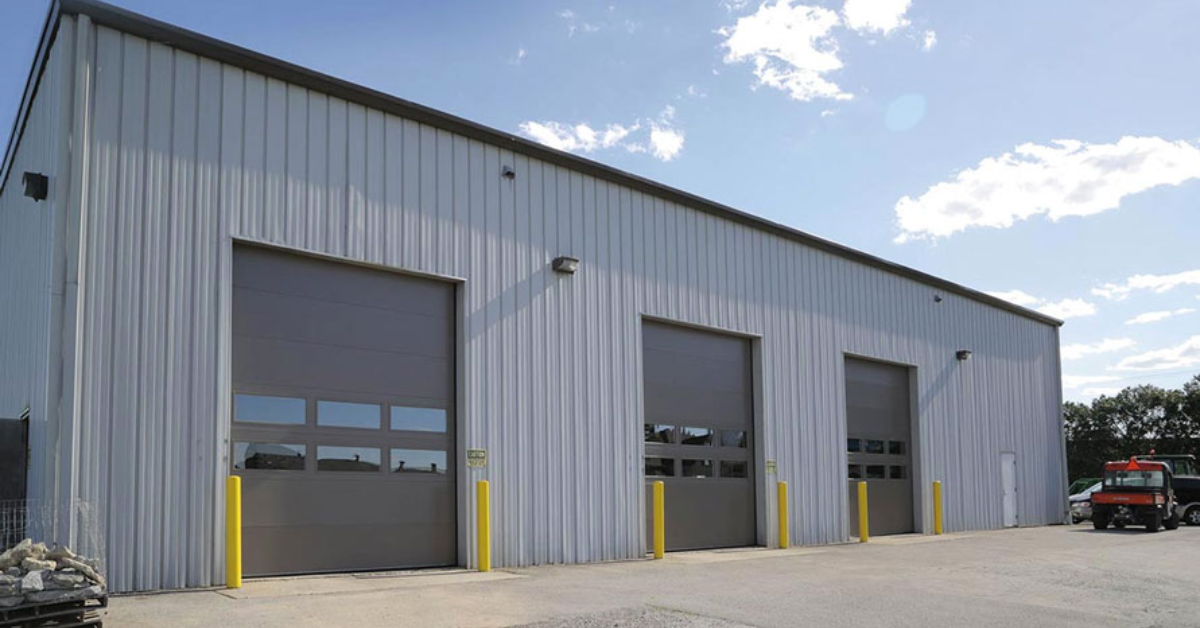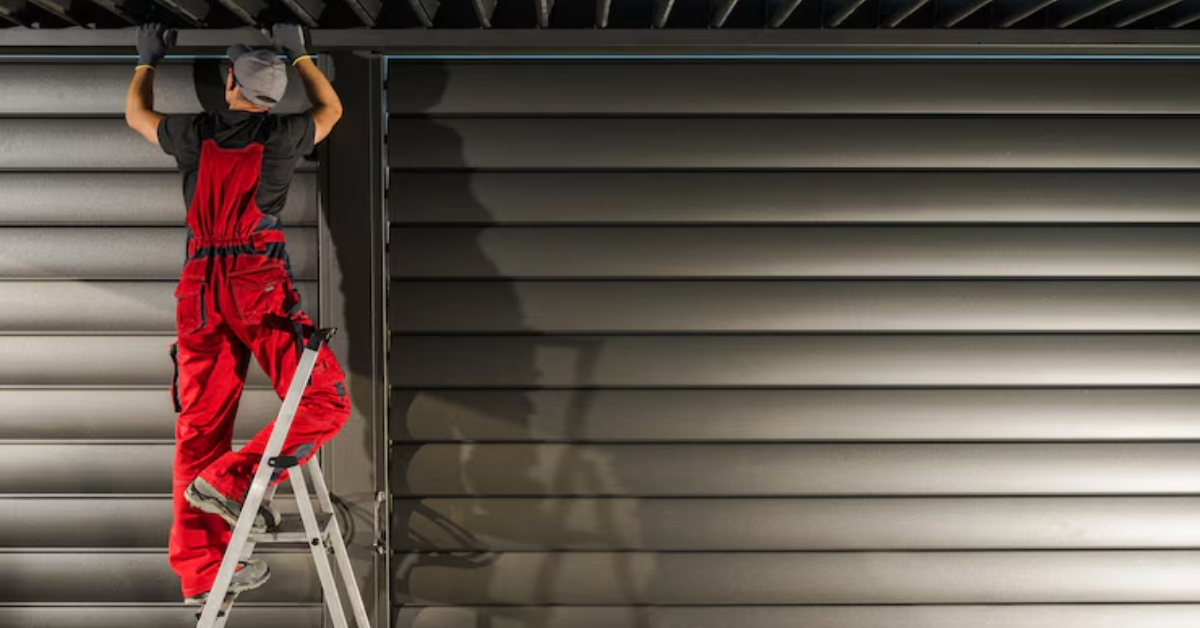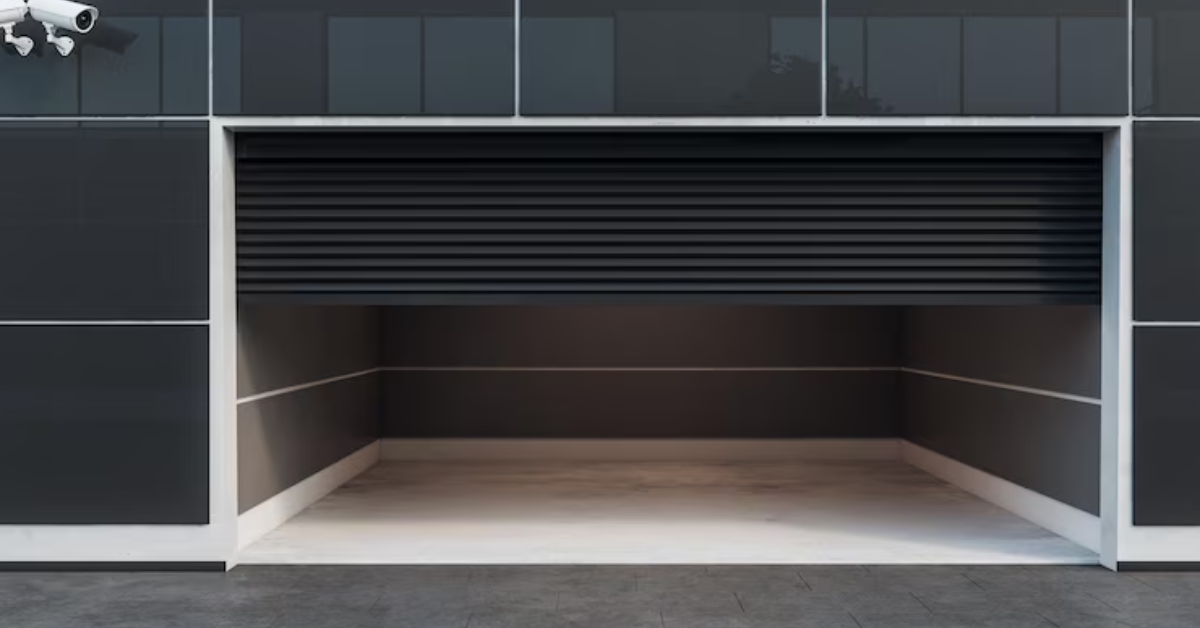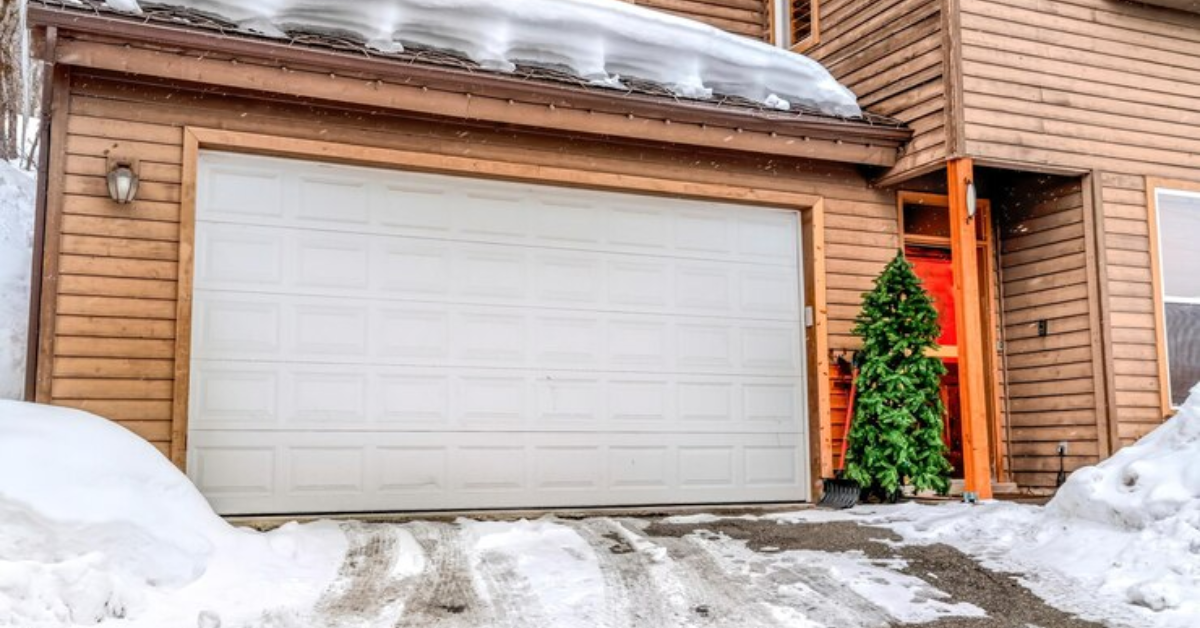Expert Solutions for Commercial Garage Door Repair
Commercial garage doors serve as vital components for businesses, safeguarding assets and ensuring smooth operations. Yet, their significance often goes unnoticed until issues arise. The essence of well-functioning commercial garage doors extends beyond mere accessibility; they epitomize security, efficiency, and a seamless workflow within commercial settings. Efficient commercial garage doors are the unsung heroes of a business. They facilitate the seamless ingress and egress of goods, vehicles, and personnel, ensuring uninterrupted workflow and operational efficiency. Beyond mere convenience, these garage doors are the frontline defenders of a company's assets, providing a secure barrier against unauthorized access, theft, and environmental elements.
Despite their pivotal role, commercial garage doors encounter a
number of issues that impede their functionality. From mechanical malfunctions to
wear and tear due to continuous use, these doors face challenges such as misaligned tracks, damaged springs, faulty sensors, or electrical problems. These issues not only disrupt operations but also pose safety hazards and potential financial setbacks for businesses.
Understanding Commercial Garage Door Mechanisms
Commercial garage doors operate through intricate mechanisms comprising various components that work in tandem to ensure smooth functionality and safety.
Springs, Rollers, and Tracks: These components form the backbone of garage door movement. Springs facilitate the door's movement by counterbalancing its weight.
Rollers glide along tracks, enabling smooth opening and closing motions.
Sensors and Safety Features: Modern commercial garage doors are equipped with sensors and safety features to prevent accidents and damage. Sensors detect obstructions in the door's path, ensuring it stops or reverses to avoid collisions. Safety features, such as auto-reverse mechanisms, enhance overall safety by stopping the door if an obstacle is detected.
How Different Mechanisms Work Together
Roll-up Doors: These doors consist of horizontal slats that coil around a barrel above the door opening. As the door opens, the slats roll up into the barrel, utilizing minimal space. The interconnectedness of the springs, tracks, and rollers enables the smooth and controlled movement of the roll-up door.
Sectional Doors:
Sectional doors comprise multiple horizontal panels hinged together. When opening, these panels move along the tracks, folding upward and then horizontally along the ceiling. The synchronization of rollers, tracks, and hinges allows sectional doors to efficiently utilize space while providing secure closures.
Signs and Symptoms of Garage Door Problems
Identifying signs indicating potential issues with a commercial garage door is essential to prevent major malfunctions and ensure timely repairs.
Unusual noises, such as grinding, scraping, or squeaking, during the operation of the garage door can signify underlying problems. Vibrations that weren't present previously might indicate issues with the alignment, worn-out components, or inadequate lubrication. These audible and tactile cues often point to the need for inspection or maintenance.
Difficulty in the smooth operation of the garage door, such as sticking, jerking, or uneven movements during opening or closing, is a clear indicator of potential problems. This issue can arise from misaligned tracks, damaged rollers, or issues with the door's balance. Any resistance in the movement should be promptly addressed to avoid further damage.
Regular visual inspections are crucial to detect visible damage or wear and tear. Look for dents, cracks, or warping in the panels, as well as fraying or misalignment of
cables. Check the tracks for debris accumulation or bends that could hinder smooth movement. Additionally, examine the springs for rust, stretching, or any signs of wear.
Preventative Maintenance for Commercial Garage Doors
To ensure the optimal performance and longevity of commercial garage doors, implementing a proactive maintenance routine is crucial.
- Regularly lubricate all moving components such as rollers, hinges, tracks, and springs with appropriate lubricants. When lubrication is performed properly, friction is reduced, wear and tear is reduced, and operations are smooth.
- Periodically test the safety features of the garage door system. Check the functionality of sensors, auto-reverse mechanisms, and emergency release mechanisms to ensure they are working correctly. This step helps maintain a safe environment and prevents accidents.
- Springs play a vital role in the garage door's functionality. Schedule regular inspections and adjustments of spring tension to maintain the proper balance and tension. This helps prevent issues like door misalignment or sudden failures.
- Misaligned tracks can impede the smooth movement of the door and lead to premature wear. Conduct routine checks to ensure the tracks are properly aligned. Adjust any misalignments promptly to prevent further damage to the door and its components.
Implementing this preventative maintenance regimen ensures that the commercial garage door operates smoothly, minimizes the risk of unexpected breakdowns, and prolongs the door's lifespan.
DIY Fixes and Safety Precautions
Empowering yourself with basic troubleshooting skills for commercial garage door issues can be beneficial, but it's essential to prioritize safety and understand the limitations of DIY repairs.
Aligning Tracks:
Check for track misalignment by visually inspecting if the tracks are parallel and properly positioned. Use a rubber mallet and a level to gently realign any sections that are off-track or misaligned. Ensure tracks are clean from debris or obstructions that may hinder proper alignment.
Tightening Hardware:
Regularly examine bolts, nuts, and screws on the garage door for signs of looseness.
Use appropriate tools to tighten any loose hardware, ensuring the door's stability and smooth operation. Replace any damaged or worn-out hardware to maintain the door's integrity.
Handling Torsion Springs:
Torsion springs store significant tension and can cause severe injuries if mishandled. Complex adjustments or replacements involving torsion springs should be performed by experienced technicians due to the high risk involved. Avoid attempting adjustments or repairs on torsion springs unless you have the proper training and tools to do so safely.
Using Safety Tools and Equipment:
- Wear safety gloves and goggles to shield yourself from potential injuries during repairs.
- Use tools specifically designed for garage door repairs to ensure safe and effective handling.
- Familiarize yourself with the operation manuals or guides for the tools and equipment you'll be using.
Prioritizing safety is paramount in DIY repairs. While some tasks like aligning tracks or tightening hardware are manageable, handling high-tension components like torsion springs demands professional expertise to prevent accidents and ensure safety. When in doubt, it's safer to seek assistance from trained professionals for complex garage door repairs.
Hiring Professionals for Commercial Garage Door Repair
Seeking professional assistance for commercial garage door repair ensures expertise, reliability, and safety in handling complex issues. Professionals possess specialized knowledge and experience essential for diagnosing, repairing, and maintaining commercial garage doors. Their expertise ensures accurate assessments of issues, effective repairs, and adherence to safety standards, minimizing the risk of further damage or safety hazards. Look for repair services with valid licenses, certifications, and accreditations. These credentials validate their expertise and adherence to industry standards. Check if technicians are trained and certified by manufacturers of the garage door system being repaired, ensuring familiarity with specific models.
Research customer reviews and testimonials to gauge the repair service's reputation and reliability. Consider feedback regarding their timeliness, professionalism, quality of work, and customer service. A track record of satisfied customers signifies dependable service.
Choosing a repair service that aligns with these criteria ensures quality workmanship, reliability, and customer satisfaction. It's essential to entrust the repair and maintenance of commercial garage doors to professionals equipped with the expertise and credentials to handle diverse issues effectively.
Cost Estimations and Budgeting for Repairs
Understanding the factors influencing repair costs and implementing effective budgeting strategies is essential for managing expenses associated with commercial garage door repairs.
Factors Affecting Repair Costs
The type of commercial garage door and its components significantly impact repair costs. Complex doors with specialized mechanisms or high-quality materials may incur higher expenses for replacement parts or specialized repairs compared to standard models. The extent and severity of damage directly correlate with repair costs. Minor issues like lubrication or minor adjustments may incur minimal expenses, while significant damage, such as broken springs, damaged panels, or motor failures, can lead to higher repair costs.
Budgeting Tips for Commercial Entities
Allocate a portion of the budget for regular maintenance to minimize the likelihood of extensive and costly repairs. Preventative maintenance helps identify potential issues early, reducing overall repair expenses. Set aside a contingency fund specifically for emergency repairs. Unexpected breakdowns or critical malfunctions might require immediate attention, and having a reserve budget ensures quick resolution without significantly impacting operations. When considering repair services, obtain quotes from multiple reputable providers. Comparing estimates allows for better budget planning and ensures fair pricing for the required repairs. Consider the age and condition of the garage door system. For older doors nearing the end of their lifespan, it might be more cost-effective to budget for a replacement rather than extensive repairs.
By factoring in these cost variables and implementing strategic budgeting practices, commercial entities can effectively manage expenses related to garage door repairs, ensuring the smooth functioning of their business operations.
Emergency Situations: Immediate Actions and Contacting Services
Addressing emergency situations related to garage door malfunctions requires swift action to mitigate potential risks and ensure safety.
- Any sudden, loud noises, grinding, or erratic movements during door operation can indicate an emergency. These could signify critical issues with the door's mechanisms.
- If the door becomes jammed, stuck, or stops midway while opening or closing, it's an emergency situation that needs immediate attention.
- Significant visible damage, such as broken springs, snapped cables, or detached panels, requires urgent assessment and repair to prevent further complications.
Steps to Take Before Professional Help Arrives
Cease Door Operation: Immediately stop using the garage door
if an emergency is detected to avoid exacerbating the issue or causing further damage.
Secure the Area:
Clear the surroundings of the garage door to prevent accidents. Keep people, vehicles, and objects away from the door and its immediate vicinity.
Do Not Attempt DIY Repairs: In emergency situations, refrain from attempting any DIY repairs, especially if the issue involves high-tension components like springs or if there's significant damage.
Contact Professional Services:
Immediately reach out to qualified and reliable garage door repair services equipped to handle emergencies. Communicate the situation clearly to expedite their response.
Prioritizing safety and swift action in identifying emergencies and contacting professional services is crucial to prevent accidents, further damage, and ensure a timely resolution of critical garage door malfunctions.
Conclusion
Ensuring the functionality and longevity of commercial garage doors demands a proactive approach involving regular maintenance, prompt identification of issues, and the engagement of professional repair services. The intricate mechanisms of these doors require expertise, and by adhering to safety guidelines and seeking qualified assistance, businesses can safeguard their assets, maintain operational efficiency, and uphold a secure working environment. With a commitment to professional solutions and proactive maintenance, businesses can optimize the performance of their commercial garage doors for years to come.




